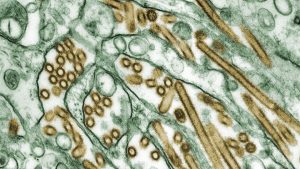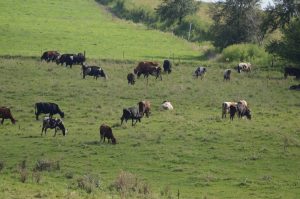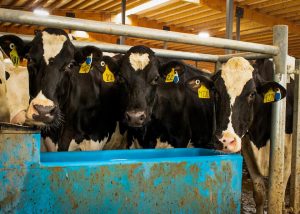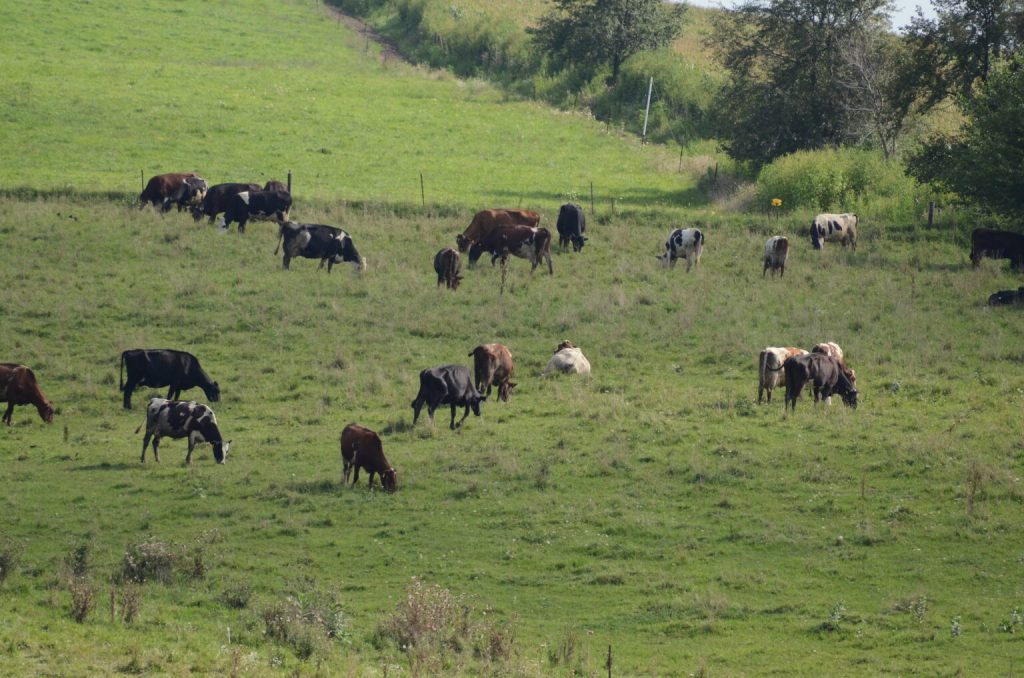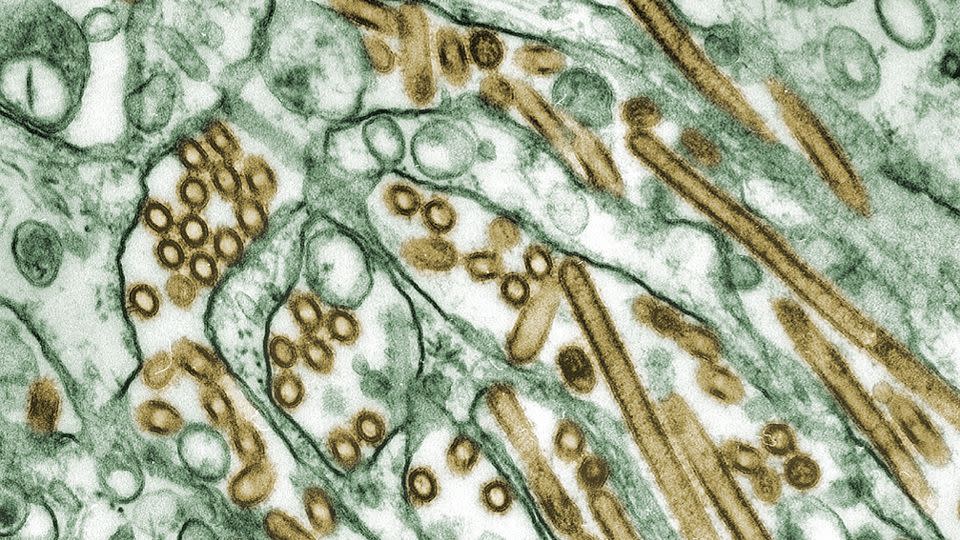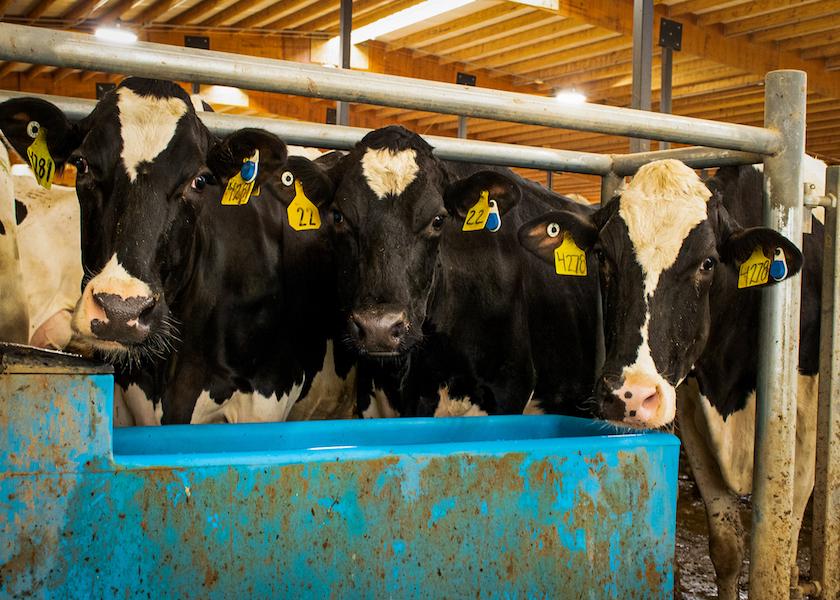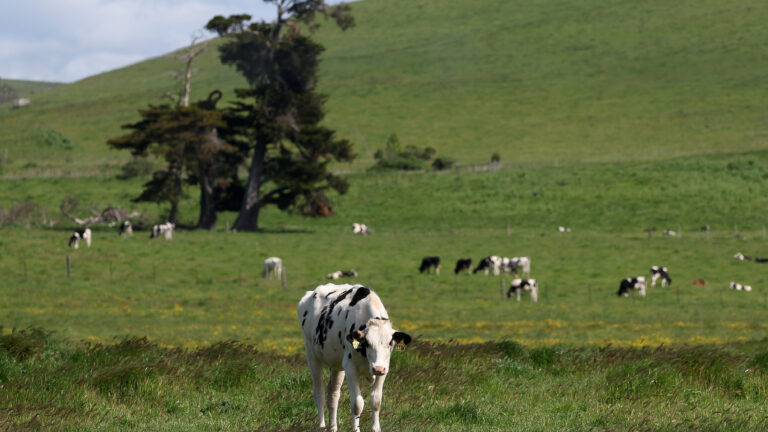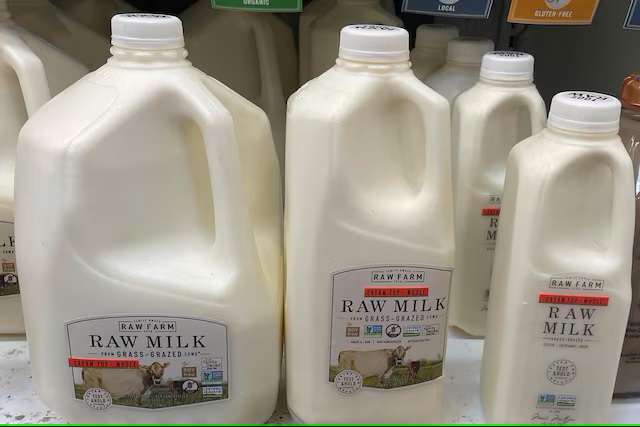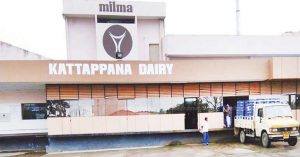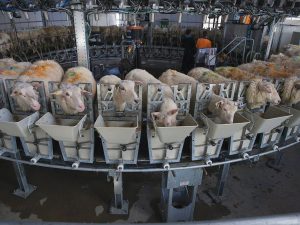Striking maintenance workers at a cheese factory in north-west Tasmania say they are sick of being treated like the “poor cousins” of mainlanders doing the same job for the same company.
More than 20 maintenance staff at Canadian milk giant Saputo’s Burnie plant walked off the job on Tuesday in protest of an “unfair” pay gap and a breakdown in wage negotiations.
They say they get paid 21 per cent less than their mainland counterparts.
Saputo Dairy Australia did not answer when asked if that number was correct.
Australian Manufacturing Workers’ Union state organiser Michael Wickham said Tasmanian workers had had enough.
“Workers at the Burnie factory are more skilled and the site more technical, but the employees just want to be paid like those on the mainland,” he said.
“[21 per cent] is one of the the biggest differences I’ve seen.
“There’s no argument Tasmanians should earn less than their mainland counterparts.”
A Saputo Dairy Australia spokesperson said the company was committed to continuing negotiations in good faith to reach an agreement for valued maintenance workers at its Burnie manufacturing site.
The company did not answer when asked why the pay gap existed, particularly considering the rising cost of living in Tasmania, as well as the apparently higher level of technical skill required at the plant.
Not just the cheesemakers
Mr Wickham said the Saputo employees were just the latest in a “tranche” of workers who were fighting for a better pay rate, and would likely be followed by other major factories.
“You have the likes of McCain, about 15 per cent behind the factory in Ballarat,” he said.
“I think no matter where you go, where there are sister factories on the mainland, we are averaging between that 15 to 21 per cent behind all of them for doing the same work.”
Mr Wickham dismissed concerns that pushing up Tasmanian wages would put other jobs at risk.
“If wages were an issue in this place, what they pay the Victorian mainland, they would have gone broke years ago,” he said.
“It’s a proven business model … milk prices are governed by Saputo regardless of wages … the only people that suffer from that are the farmers.”
Saputo bought the factory from Lion Dairy and Drinks in 2019, where it has continued to produce specialty cheese brands South Cape, Tasmanian Heritage and Mersey Valley.
Since 2022 the company has closed three facilities across Victoria and South Australia, and late last year announced it was considering the sale of its King Island dairy factory.
You can now read the most important #news on #eDairyNews #Whatsapp channels!!!
🇺🇸 eDairy News INGLÊS: https://whatsapp.com/channel/0029VaKsjzGDTkJyIN6hcP1K


